Mate the Series doesn’t gently pull you in. It drags you into emotional chaos and never lets go. This Thai GL drama dares to be raw, messy, and unforgettable.
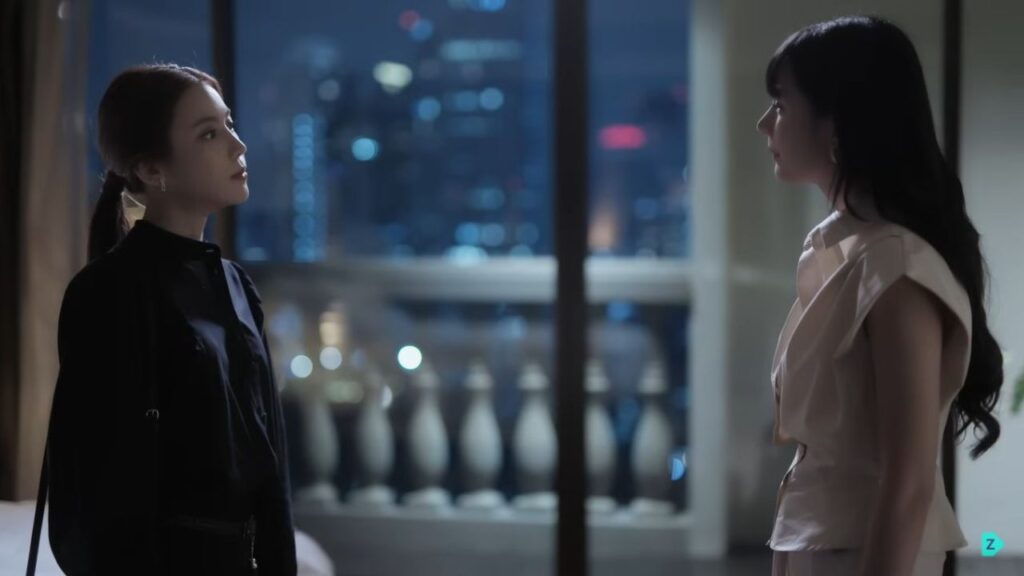
Trigger Warning: This post discusses sensitive topics such as trauma, abuse, mental health, and toxic relationships. Please read with care.
This isn’t your typical Thai GL romance filled with sweet moments and predictable happy endings. Instead, it dives deep into darker, messier waters, portraying love that is far from perfect and painfully real.
If you came here looking for lighthearted fluff, you might want to turn back now. This show doesn’t shy away from the gritty sides of relationships.
It explores the complex emotions that come with trauma, power struggles, and the scars people carry beneath their smiles. The characters are flawed, their choices sometimes hard to watch, but always honest.
What makes Mate the Series stand out is its willingness to show love in all its complicated forms. It refuses to romanticize pain or gloss over difficult truths. It offers a raw, unfiltered look at how love can hurt and how that hurt shapes the people involved.
So, if you’re ready to explore a story that challenges the usual romance narrative and asks the tough questions, buckle up. This journey is anything but easy, but it’s undeniably worth it.
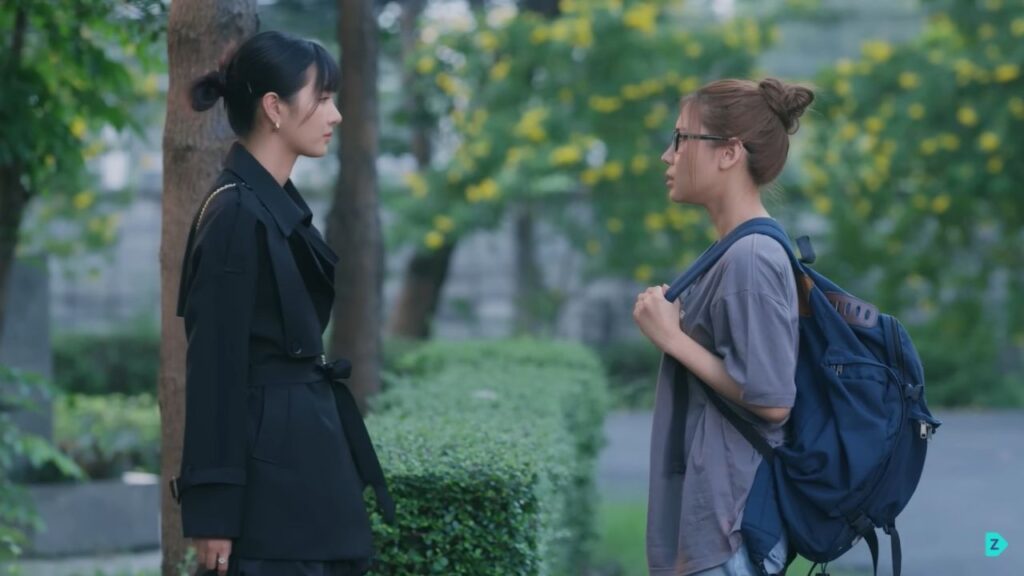
Table of Contents
- Not Just Friends: When Childhood Bonds Turn Volatile
- Grace and Oaey: Carriers of Emotional Truth
- Mate the Series and the Weight of Unspoken Trauma
- Toxicity, Redemption, and the Slow Dance of Healing
- A GL That Isn’t Afraid to Get Ugly
- Soulmates, Really? Or Just Trauma-Bonding in Disguise?
- A GL Series That Questions More Than It Answers
- Male Gaze vs. Female Experience: The Sex Scene Debate
- The Flaws Are Real, but So Is the Impact
- The Real Crime? A Lack of Justice
- Final Verdict: Messy, Uncomfortable, and Absolutely Necessary
- Should You Watch It? Maybe. Should We Talk About It? Definitely.
Not Just Friends: When Childhood Bonds Turn Volatile
The relationship between Gen and Aoey forms the beating heart of Mate the Series. But calling it a simple love story doesn’t capture the full picture. Their bond is tangled, filled with layers of longing and pain that run deeper than romance alone.
From childhood, these two have been connected in ways that blur lines between friendship and something more. Their past is marked by moments that should have been innocent, like playground games and shared secrets. Yet those early memories carry shadows that follow them into adulthood.
Power dynamics play a huge role in their connection. There’s a push and pull between control and vulnerability, trust and suspicion. Both carry unhealed wounds that color their interactions and decisions. The way their history bleeds into every scene makes their story feel raw and authentic, not just a scripted romance.
This volatile mix of emotions creates tension that keeps you hooked. It’s messy and uncomfortable, but also incredibly real. Mate the Series shows that some bonds aren’t easy to define, and sometimes they hurt more than they heal.
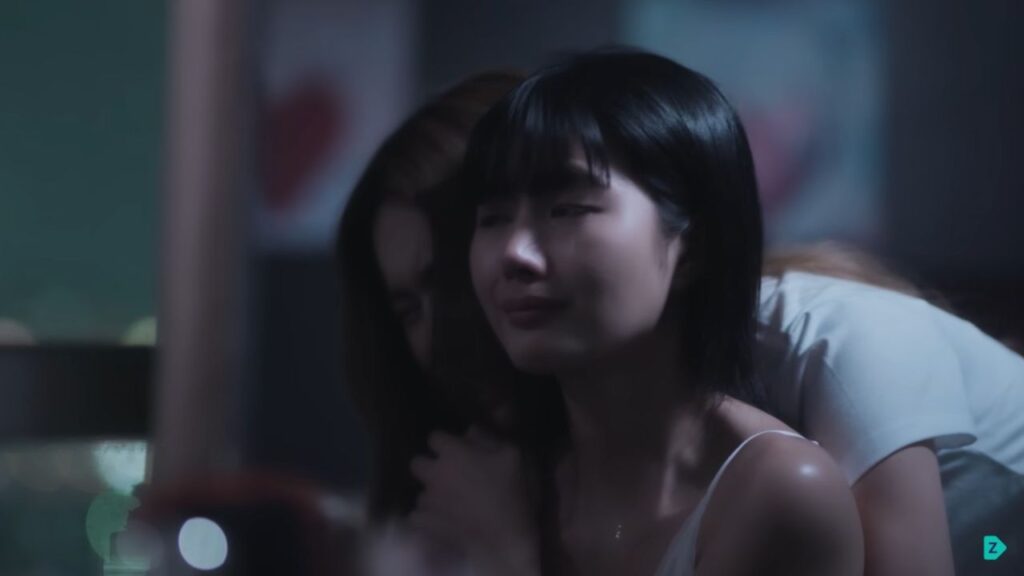
Grace and Oaey: Carriers of Emotional Truth
Let’s be clear: without Grace and Oaey, Mate the Series wouldn’t work. Their performances carry the emotional weight of the story, making every scene resonate with honesty.
Grace’s portrayal of Gen is subtle yet powerful. She captures the complexity of a character who isn’t always likable. But through Grace’s eyes, we understand Gen’s struggles and flawed humanity.
Oaey’s depiction of Aoey’s PTSD is handled with remarkable sensitivity. She avoids overacting and instead shows a quiet, believable ache. This vulnerability feels real, not exaggerated.
Together, they create a dynamic that feels raw and genuine. Their chemistry adds depth to the story’s darker themes. Without them, the layered trauma and imperfect love at the series’ core would lose its impact.
Their performances remind us that behind every flawed character is a story worth telling. They carry the emotional truth that makes Mate the Series unforgettable.
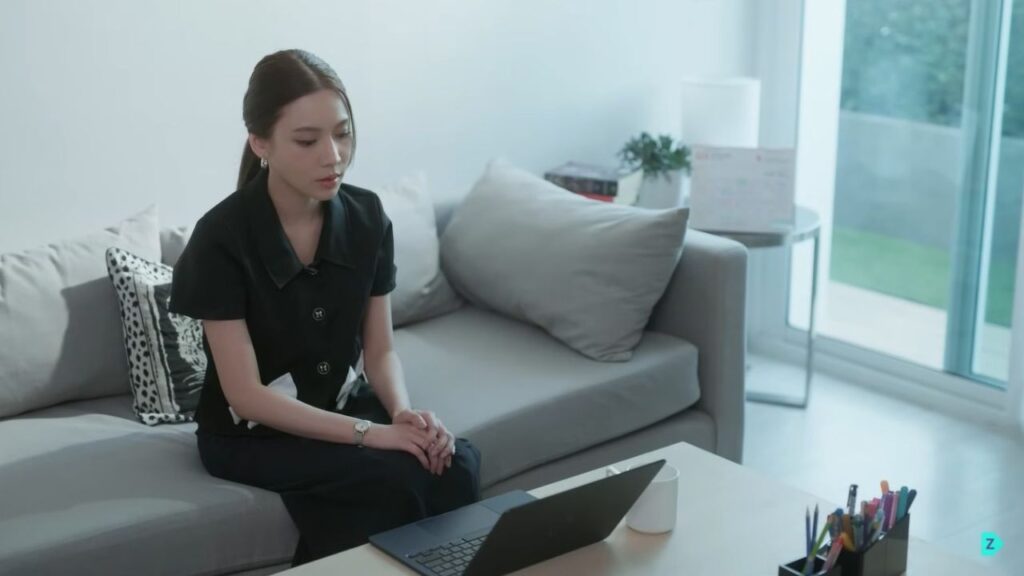
Mate the Series and the Weight of Unspoken Trauma
Mate the Series dives deep into heavy topics such as sexual assault, mental illness, and societal pressure. It doesn’t shy away from these difficult issues, but it doesn’t always handle them with care.
At times, the show risks using trauma as a kind of aesthetic, almost like a backdrop to add intensity. This can feel uncomfortable or even exploitative.
Other moments, however, hit the mark perfectly. The series captures the real pain and confusion trauma brings, giving viewers a glimpse into the characters’ inner battles.
But there are also times when the message gets lost or muddled. The portrayal can feel rushed or shallow, leaving important issues underexplored.
Despite these flaws, the series deserves credit for trying. It dares to put trauma front and center, forcing viewers to confront harsh realities.
Not many GL dramas tackle these themes with such boldness. It’s a messy effort, but one that sparks conversation and reflection.
In the end, Mate the Series is about more than just love. It’s about the scars that love can leave behind.
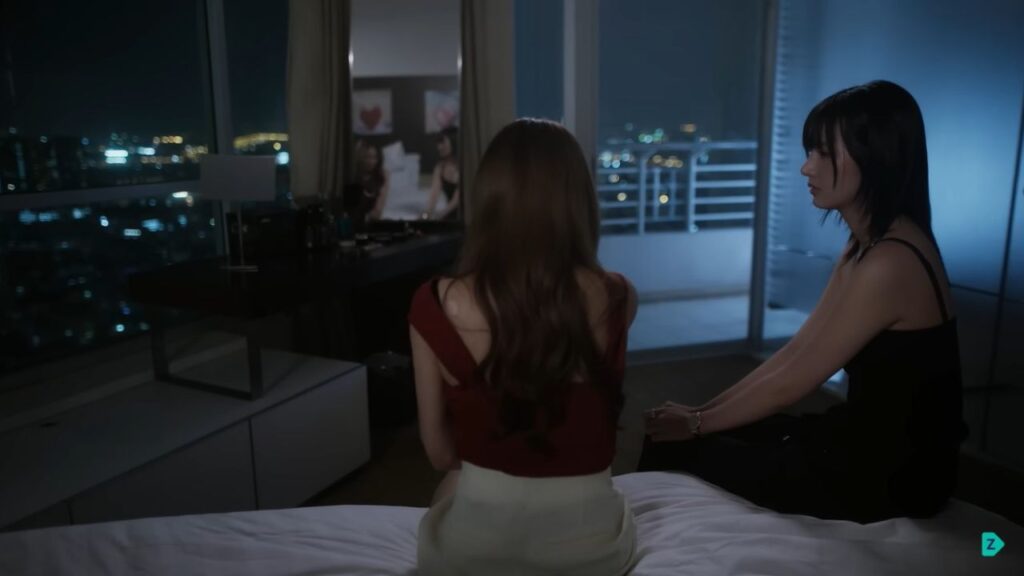
Toxicity, Redemption, and the Slow Dance of Healing
The love story in Mate the Series isn’t about fairy-tale moments or sweeping romantic gestures. Instead, it unfolds slowly, through pain and struggle. This love crawls through fire. It leaves scars. It’s messy, complicated, and far from perfect.
There’s toxicity in the relationship, clear and raw. But the series doesn’t shy away from showing the potential for growth amid the chaos. It’s painful to watch, but that pain feels honest. Healing doesn’t come easy or fast here. It’s a slow and fragile process.
The show never tries to excuse bad behavior. It holds characters accountable for their actions, even when they falter. But it also seeks to understand why they act the way they do. It asks tough questions about forgiveness and change.
This isn’t a neat story with a clean resolution. It’s about navigating the gray areas of love and redemption. And sometimes, that’s exactly what makes it so real.
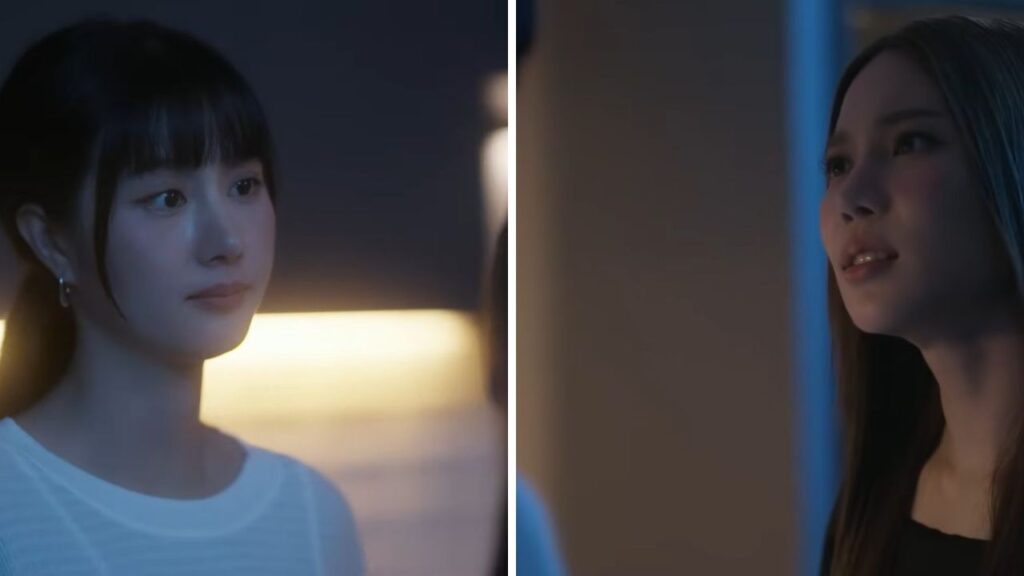
A GL That Isn’t Afraid to Get Ugly
Let’s be honest: Mate the Series never settles for being background noise. It demands your full attention. You either lean in or check out, and there’s no middle ground.
The dialogues aren’t always smooth. At times, conversations feel clunky or forced. Some scenes drag longer than they should, testing your patience. Others hit too hard, too fast, leaving you breathless.
But what the series lacks in polish, it makes up for in boldness. It never plays it safe. It dives headfirst into messy emotions and difficult situations, refusing to sugarcoat the truth.
This show isn’t comfort food. It’s something heavier, darker, and far more complex. It challenges the typical GL formula. Instead of cute tropes, it offers a raw, unfiltered look at love’s complicated realities.
If you’re expecting a light romance, Mate the Series will surprise you. It’s not about easy endings or feel-good moments. It’s about the ugly, painful sides of relationships that most shows avoid.
And that willingness to get ugly? It’s exactly what makes this series unforgettable.

Soulmates, Really? Or Just Trauma-Bonding in Disguise?
The show insists that Gen and Aoey are “meant to be.” This idea of soulmates runs deep throughout the series, almost like an unbreakable destiny. But is it really love? Or is it something more complicated, like trauma bonding?
Love built on forgiveness can be powerful. But when does forgiveness turn into emotional codependency? When does caring for someone cross into a cycle of pain and reliance? Mate the Series doesn’t give clear answers, and that’s what makes it so compelling.
There’s plenty of room for interpretation. Some viewers will see a profound connection, a bond that transcends their past wounds. Others will recognize patterns of unhealthy attachment and question if this relationship is truly sustainable.
The show trusts its viewers to decide for themselves. It doesn’t hand out neat conclusions or moral judgments. Instead, it invites us into a complex conversation about what love really looks like when it’s tangled with trauma.
That trust in the audience sets Mate the Series apart. It challenges us not just to watch but to think, to reflect, and maybe even to question our own ideas about soulmates and healing.
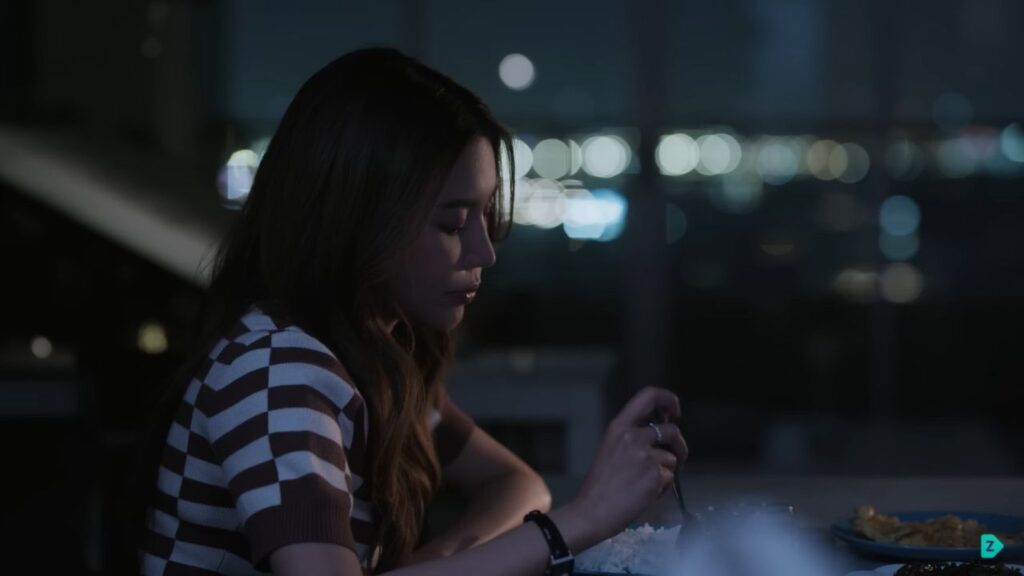
A GL Series That Questions More Than It Answers
Where most GL series stick to romance, Mate the Series takes a different path. It dives into much darker territory, refusing to shy away from uncomfortable truths. This is not just a love story; it’s a story about broken systems and hidden pain.
One subplot involves Gen’s father. His actions are clearly criminal, yet the series doesn’t deliver justice in the way viewers might expect. This leaves a lingering sense of injustice that feels both frustrating and real. It’s a bold choice for a genre that usually offers neat resolutions.
Here, the key word is not just “love.” It’s accountability. The series pushes us to think about who is responsible for the damage caused and what happens when that responsibility is ignored. Sometimes, Mate the Series faces this head-on. Other times, it shies away, leaving tough questions hanging in the air.
Still, for a GL series that includes crime and trauma, Mate the Series dares to ask these difficult questions. It challenges the genre’s conventions and forces the audience to confront realities that are often glossed over. That bravery sets it apart and gives it lasting impact.
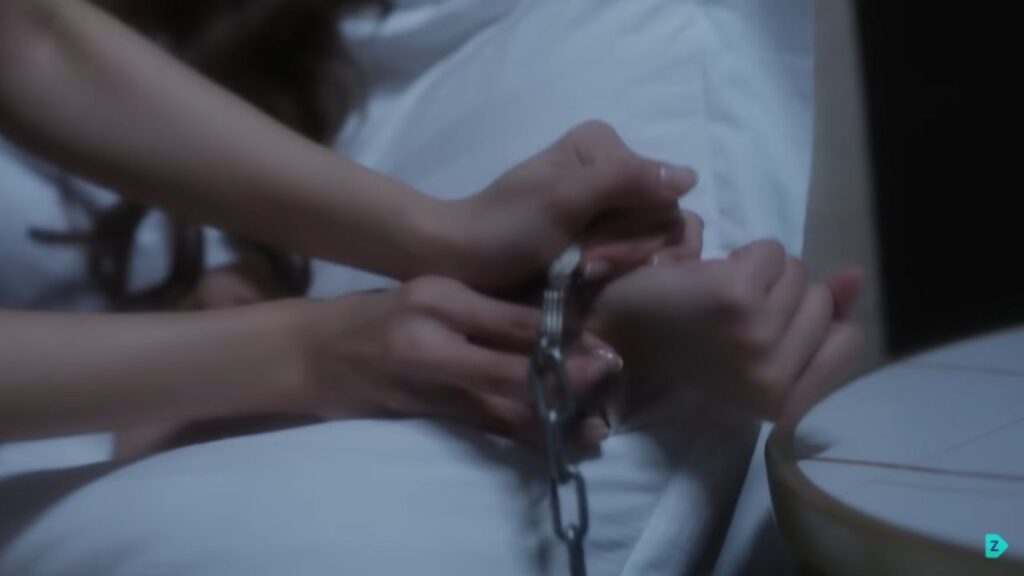
Male Gaze vs. Female Experience: The Sex Scene Debate
Let’s address the elephant in the room. Some of the love scenes in Mate the Series feel overly stylized, almost like they were crafted more for visual appeal than emotional truth. This contrast is hard to ignore.
You can easily spot which moments aim to build genuine connection between the characters. These scenes feel raw, tender, and authentic. But then there are others that seem designed for the male gaze, slick, polished, and sometimes disconnected from the story.
This tonal imbalance disrupts immersion. Instead of drawing you deeper into the characters’ experiences, it pulls you out, reminding you that you’re watching a production shaped by outside expectations. That’s a problem for a series trying to portray messy, real relationships.
Showing intimacy isn’t enough. The series needs to show who that intimacy is for. Is it for the characters’ growth and emotional journey? Or is it for the audience’s entertainment? Mate the Series sometimes stumbles here, revealing a tension between female experience and male fantasy.
This debate matters because it shapes how we connect with the story and whether it respects the complexity of queer love.
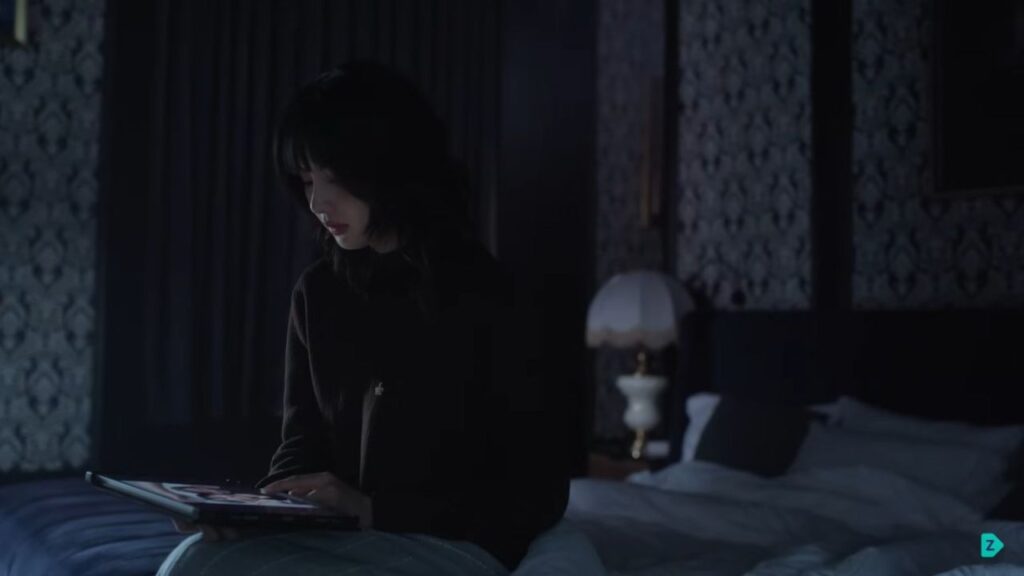
The Flaws Are Real, but So Is the Impact
Yes, Mate the Series has its flaws. Some scenes feel repetitive, like the story is stuck on a loop. This can test your patience, especially when you crave forward momentum.
Dialogue often gets clunky, too. Characters sometimes say what feels more like a script than natural speech. It pulls you out of the moment, making the emotional beats less convincing.
Secondary plots vanish without resolution. Threads that promise tension or answers simply fade away, leaving questions hanging in the air. It’s frustrating when important issues are left unexplored or forgotten.
Yet, despite these imperfections, Mate the Series leaves a mark. The pain portrayed is raw and earned, not cheap or forced. You can feel the weight of each character’s struggle as something deeply human.
The characters feel lived in, flawed, complex, and real. Their mistakes don’t just serve the plot; they reveal truths about love, trauma, and survival. This authenticity is what lingers long after the screen fades to black.
In the end, the impact outweighs the flaws. It’s messy and imperfect, but that’s what makes it resonate.

The Real Crime? A Lack of Justice
One of the most unsettling elements in Mate the Series is the glaring absence of justice. Gen’s father commits crimes that ripple through the story, yet the consequences never truly arrive. His actions remain unpunished, hanging over the narrative like a dark cloud.
This silence isn’t accidental. It mirrors real life, where perpetrators sometimes escape accountability, and survivors are left to navigate their pain alone. The series refuses to offer neat resolutions, forcing viewers to sit with discomfort.
Aoey’s trauma is handled with care but often feels glossed over in the grand scheme. Her pain exists, yes, but the healing process is rushed or overshadowed by other plot points. It’s a stark reminder that real recovery is neither quick nor simple.
Meanwhile, the show romanticizes the bond between Gen and Aoey, a bond tangled in toxicity. Their “soulmate” label raises questions: is this love or just trauma bonding disguised as destiny?
If you come to Mate the Series expecting clean morals or clear answers, you’ll be disappointed. The real tension lies in what remains unresolved, those cracks and shadows the story never quite fills. And maybe that’s the point.
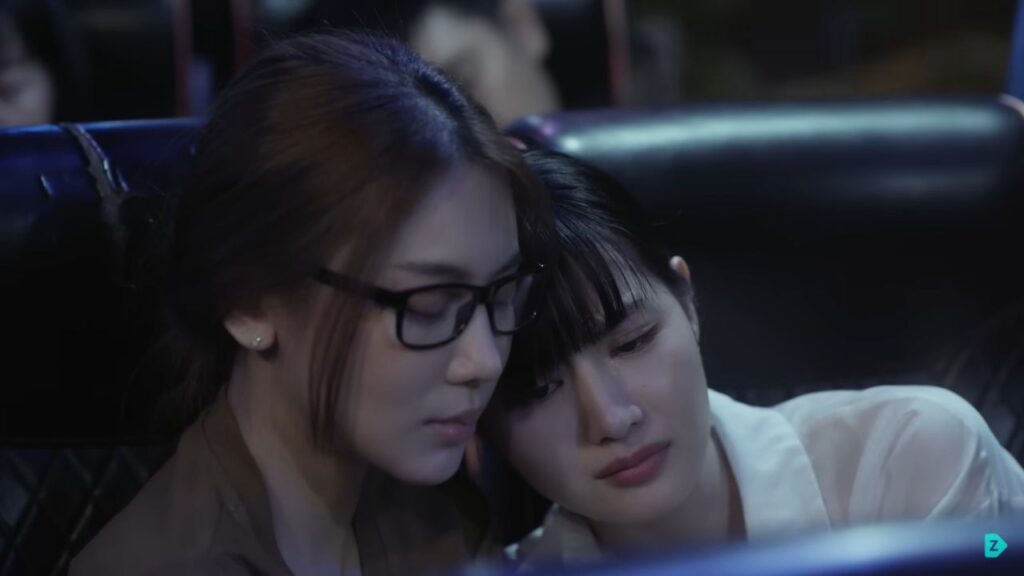
Final Verdict: Messy, Uncomfortable, and Absolutely Necessary
Mate the Series is far from a feel-good love story. It challenges everything we think we know about love, especially in the GL genre. This isn’t about fairy-tale endings or easy resolutions.
Instead, it throws us into messy, uncomfortable territory. The characters stumble through pain, mistakes, and flawed decisions. Their love is raw, imperfect, and often painful.
That’s exactly why this series matters. It doesn’t sugarcoat trauma or pretend love always fixes everything. Sometimes love hurts first and only later teaches us something deeper.
The show forces us to confront difficult emotions and uncomfortable truths. It questions romantic ideals and pushes viewers to rethink what healing looks like.
If you’re looking for comfort or cliché romance, this isn’t your series. But if you want a story that dives into the complexity of human connection, flaws and all, Mate the Series delivers.
It’s a reminder that love isn’t always clean or simple. Sometimes, it’s a battle. A slow, painful dance toward understanding.
And in that struggle, there’s something profoundly real. Something necessary.
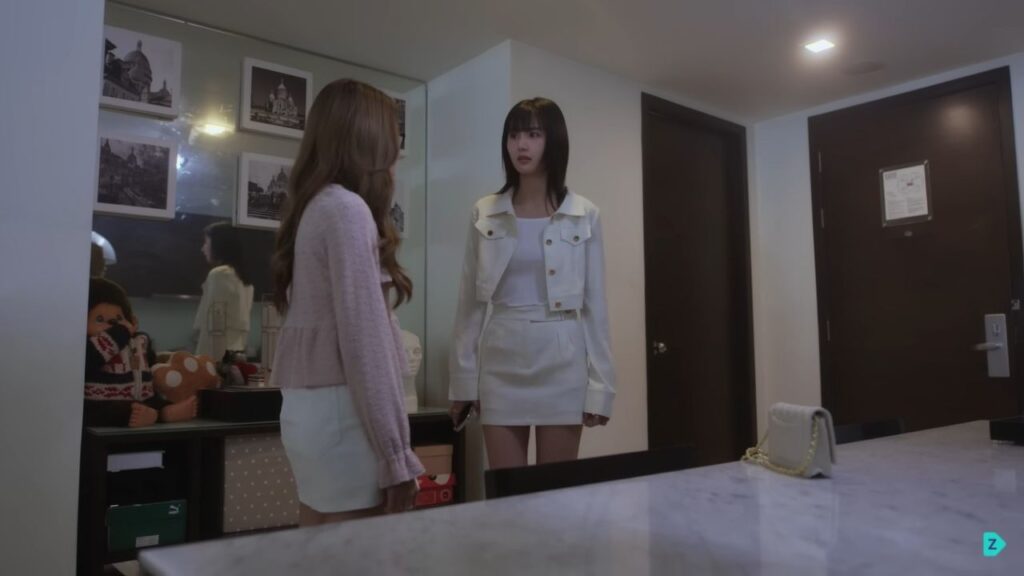
Should You Watch It? Maybe. Should We Talk About It? Definitely.
If you’re new to Thai GLs, Mate the Series might at first feel like a tough introduction. It’s not the light, easy watch many expect from the genre. Instead, the themes are heavy and the emotions raw.
However, if you’re looking for a series that cuts deeper than cute tropes and predictable plots, this is definitely the one to start with. Moreover, it challenges the norms and pushes boundaries in ways few GL shows dare to.
That said, trigger warnings are necessary here. The series tackles difficult topics like trauma, mental health, and toxic relationships without pulling punches. Therefore, it’s not for the faint-hearted.
Still, there’s undeniable value in that discomfort. When a story is honest about pain, it opens space for reflection and conversation. Indeed, that’s something rare and important.
So, while watching Mate the Series might not be for everyone, talking about it absolutely should be. After all, it’s a series that deserves discussion about love, trauma, and what we accept in relationships.
Are you ready to lean in? Because this story won’t just play in the background. It demands your full attention.
Your Turn: What Did Mate the Series Stir in You?
Did you love it? Hate it? Want to scream at the screen?
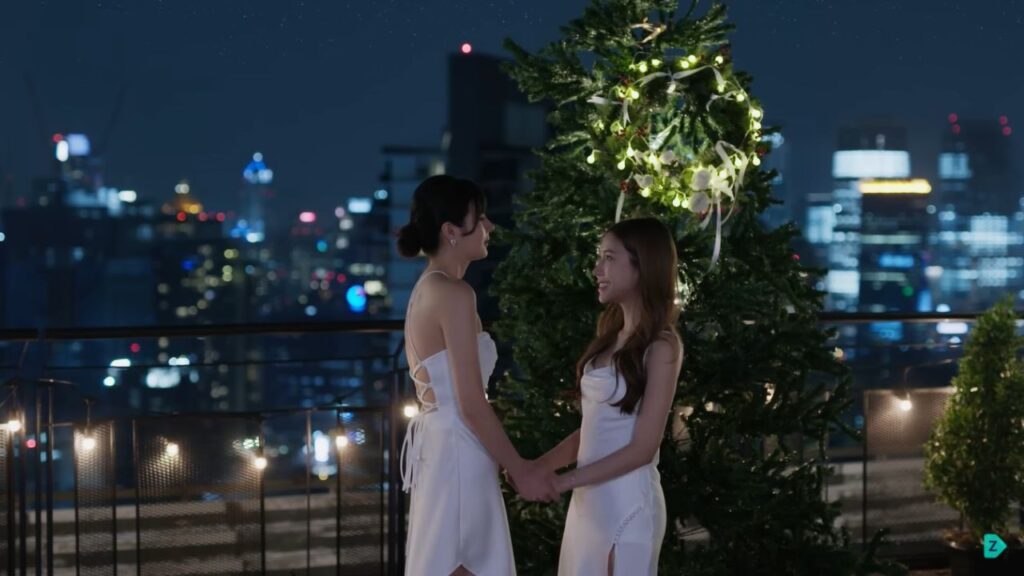
Featured image: Promotional still courtesy of Zense Entertainment.



